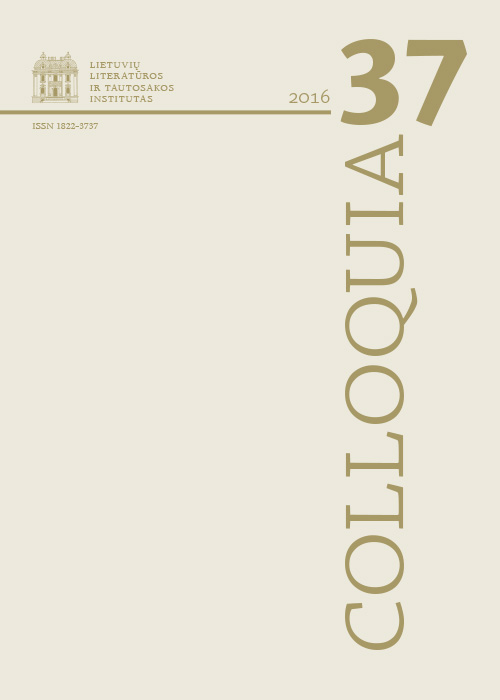Vytauto Kubiliaus, Rimvydo Šilbajorio kritika ir dekonstrukcijos vaiduoklis
Santrauka
Straipsnyje aptariami XX a. antros pusės dviejų garsių lietuvių literatūros kritikų Vytauto Kubiliaus ir Rimvydo Šilbajorio tekstų dekonstravimosi požymiai. Nors Kubiliui buvo būdingas fenomenologinis domėjimasis rašytojo kūrybos stiliaus unikalumu, o Šilbajorio kritikai – formalizmo ir Skaitytojo atsako teoriniai pagrindai, nors abu ieškojo kuo didesnio tapatumo su kūriniu ir kuo tikresnės jo tiesos, esencialistiškai tikėdami, jog jo meniškumą nulemia organiškai ar struktūriškai rišli turinio ir formos visuma, abiejų tekstuose galima surasti ir keletą dalykų, sietinų su dekonstrukcijos teorija. Pirmas ir svarbiausias požymis – jų dėmesys kūrinio kalbai ir jos imanentiškumui. Abiejų darbų antrasis dekonstrukcinis požymis sietinas su žanrų sintezės, metodologinio eklektizmo, eseistinio rašymo idėjomis, literatūrinės ir mokslinės kalbos, racionalios ir emocinės kritikos takoskyros trynimo tendencija. Trečiasis dekonstrukcinis jų kritikos požymis kyla iš jų sąsajų su romantizmo tradicija, pasižyminčia idealizmo ir nihilizmo priešpriešų „sinteze“, kalbos figūratyviškumo, neapibrėžtumo ir žaismės idėja.
Atsisiuntimai
Skaitomiausi šio autoriaus(ų) straipsniai
- Aušra Jurgutienė, Literatūros kanono dirbtuves aplankius , Colloquia: T 51 (2023): Colloquia
- Aušra Jurgutienė, Lyginamieji literatūros tyrimai Violetos Kelertienės kritikoje , Colloquia: T 55 (2025): Colloquia
- Jūratė Čerškutė, Aušra Jurgutienė, Pasakojimais mes ne tik konstruojame, bet ir dekonstruojame savo gyvenimus , Colloquia: T 54 (2024): Colloquia
- Aušra Jurgutienė, Definicijos ir diskusijos: lyginamoji literatūra tarpukario Lietuvoje (1918–1940) , Colloquia: T 41 (2018)
- Aušra Jurgutienė, Kelios mintys apie naująsias lenkų ir latvių literatūros istorijas , Colloquia: T 53 (2024): Colloquia
- Aušra Jurgutienė, Baltijos šalių konferencija – tarptautinė ar regioninė? , Colloquia: T 32 (2014)
